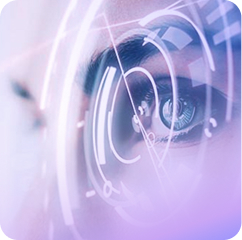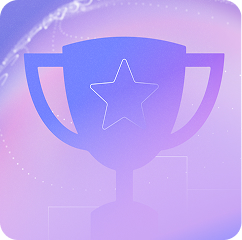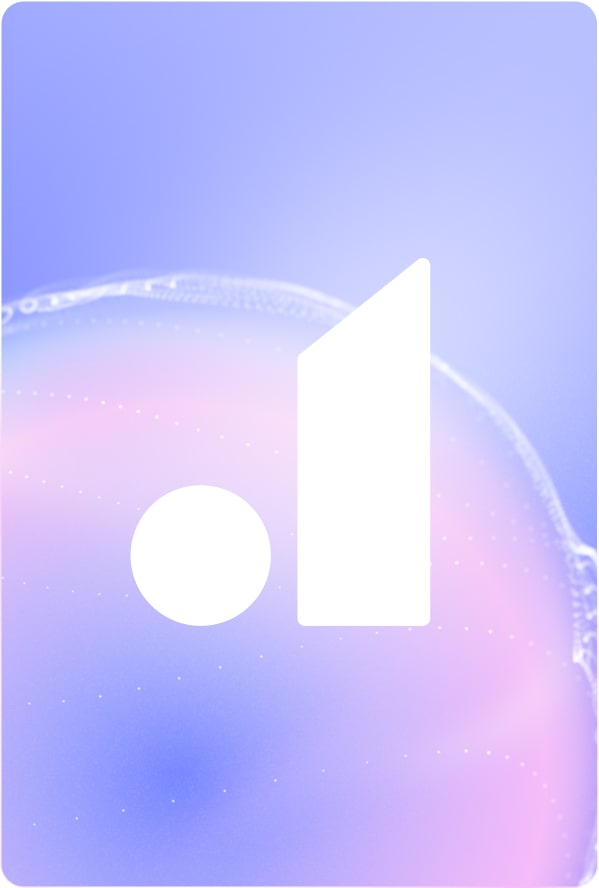
// Executive Search Best Practices, Recruitment Strategies
How AI interview transcript software streamlines your recruitment
16/04/2025
10 MIN
Interview transcript software solves all your issues when writing recruitment notes. It captures every word of your conversation and empowers you with AI-assisted searching functionality.
According to BDO, 48% of UK recruitment agencies have already adopted some form of AI. Using AI-first recruitment solutions like Atlas is no longer just an option for recruiters—it’s a competitive necessity. Whether you’re a one-man recruitment army or work as part of a staffing agency, interview transcripts can save precious time and result in far more placements as a result.
But let’s step back for a moment and go over the fundamentals first. What are recruitment interview transcripts all about, and how do they fit into your hiring pipeline?
Never write a single interview note again. Let Atlas do the heavy lifting for you >>
What is a recruitment interview transcript?
Interview transcripts represent the written documentation of your recruitment interviews. Modern recruitment platforms like Atlas turn audio and video calls into interactive transcripts you can use to dig deeper into your conversations.
For example, you may be wondering about your candidate’s salary expectations or notice period a few weeks after your call. Instead of asking the candidate personally, you can consult your recruitment interview transcript software to learn more. This is a convenient solution that saves time and lets you focus on the outcomes of your hiring activities.
The best tools for taking interview notes will also let you create brand-new follow-up messages or emails for your outreach. This further incentivises you to reach out to more candidates and focus on the placements, not the admin surrounding your hiring.
And according to Rectec, over 70% of UK HR leaders already use AI-powered analytics to gain deeper insights. With a reliable solution in your hands, you can go above and beyond traditional recruitment for the benefit of both your clients and candidates.
Uncover potent insights from your hiring pipeline. Start for free >>
How do you write a recruitment interview transcript?
Traditional interview transcript writing consists of listening to recordings and transcribing your meetings line by line. Not with Atlas. Instead of writing transcripts by hand, it turns your interviews into explorable conversations.
You can go back and forth between different points in your interview to learn more about your candidate or refer to past conversations. Atlas stores the entire history of your interactions with a candidate, including calls, emails, resumes, and more.
Proper record transcription allows you to devote more attention to candidate selection and other pressing activities instead of parsing notes and writing interview transcripts by hand. With actionable transcripts enriched with time stamps in hand, you can lead more meaningful conversations and get to the core of your candidate’s motivations, strengths, needs, and career goals far more quickly.
How do interview transcripts change recruitment?
Transcribed interview recording helps recruiters cut down on admin and focus on assessing their candidates. It eliminates manual transcription and ensures key insights are always available.
This ensures top candidates are found quickly and folded into your executive search reports. As a result, background noise is eliminated and all your meetings are available at a click, with great accuracy and even higher interactivity with Atlas.
These transcripts can then be used to outline outreach campaigns, spec candidates, and otherwise engage in conversing with both clients and candidates with magic messages. In the grand scheme of things, interview transcripts powered by AI are a game-changer for both solo and agency recruiters.
Never transcribe an interview by hand again. Eliminate your admin >>
6 perks of using interview transcription software in your staffing agency
Having immediate access to audio and video recordings with verbatim transcription is a benefit in itself for any recruiter. But let’s dive a little deeper into transcription. Why should recruiters use any AI transcription method to turn their interviews into easily scannable notes?
The answer lies in a multitude of perks that allow recruiters to turn multimedia into a written record of their hiring efforts. Let’s take a closer look.
1. Process your candidates with higher accuracy
Recruiters are always pressed for time, no matter the size of their team or the deadline. With edited transcription readily available, recruiters can process their candidates with much higher accuracy compared to using traditional ATS software.
This ensures higher-quality candidates get their placements more quickly with the right clients, all thanks to reliable, verbatim transcription. Moreover, these transcripts allow recruiters to instantly skim through hundreds of interviews without having to transcribe speech by hand.
Automatically transcribe an interview with powerful AI agents. Do it with Atlas >>
2. Review job interview transcripts weeks and months after
They say hindsight is 20/20, and you’ll likely want to revisit your candidates down the line. Clients’ needs might change, and you’ll want to be ready with brand-new candidate reports to share straight from your transcription software. These reports are much easier to write from scratch if you have a database of interview transcripts readily available.
With Atlas, you can generate candidate and executive search reports in minutes, all powered by your recruitment transcripts and other candidate communication. It sets a precedent for faster, more efficient candidate processing. Its transcription frees up your time and lets you devote your full attention to research interviews and fill the roles with the right candidates.
3. Drill down on specific talking points with an AI assistant
Reviewing your interview recording, looking for mentions of particular skills or answers to your questions, is a thing of the past. As you conduct each job interview with your candidates, you’ll want to apply active listening to your meetings.
This is nigh impossible if you also keep checking your transcription software to see if everything is going well. Worse yet, you might be taking handwritten notes while recording, which is an unreliable transcription method, to say the least.
With an AI-first solution like Atlas, you can not only manage your hiring pipeline start to finish, but also access any of your previous meetings and the written record of your interviews. And with smart AI agents, you can talk to Atlas and discover particular details of your conversations just as naturally as you would message the candidates themselves.
4. Share cleaner, more accurate candidate reports with clients
As you interview candidates in different ways depending on their backgrounds, skillsets, and campaigns, you’ll want to let your clients know how things are going. Without an interview transcript software that remembers everything you ever said, heard, read, or wrote regarding that candidate, it’s nigh impossible.
Creating objective, informative executive search reports in a reasonable amount of time and without AI agents to back you up just won’t work in 2025. Instead, you can safely rely on Atlas’s assortment of AI-first solutions to not only transcribe your interviews but also go a step further.
Every recording in your transcription software becomes a treasure trove of talking points you can bring up with your client with just a prompt. This will allow you to determine the best approach for each candidate and save time doing so, instead of having to create a transcript for each call by yourself. And the rest is history in terms of using AI over traditional recruitment solutions.
5. Maintain high consistency in how you manage interview notes
Every transcript matters, especially as you scale your hiring pipeline. It’s why you want to maintain consistency from day one to avoid confusion and misunderstanding, especially if you work as part of a staffing agency.
To ensure all your interviews are properly transcribed, you’ll want to use a solution that does the job for you automatically. And, you’ll want the transcript speech parsed and ready for analysis the moment it enters your transcription software database.
With hiring tools that pair interview transcripts with valuable tools like candidate reports, outreach campaigns, and AI-driven analytics, you’ll never transcribe an interview yourself again. Reliable transcription software will also ensure consistency between interview one and interview 1,000, no matter who participates in the talks, which computer or laptop they use, or what project the candidate is a part of.
All that matters is that your team collaborates within a single Atlas environment, and any following information thereafter will be safely stored in your hiring database.
Keep every transcript under one roof with Atlas. Start for free >>
6. Quickly get new recruiters up to speed on your interview processes
Having on-demand access to a rich library of interviews is one of the best things a new recruiter could hope for. Onboarding a new hire is exciting, but it’s even more exciting if you can do it right from day one.
Every transcript you share with your team should be easy to scan and even easier to parse for information. Both are just a button press away with an AI-first system that does the transcription for you.
Audio and video recordings transcribed into digestible records you can analyse with smart AI are what will really make a difference for modern recruiters. So instead of trying to refine your transcription method by adopting different ways to write by hand, try a solution powered by dedicated AI agents instead.
Interview transcript software FAQ
While interview transcripts may seem like an outdated concept at first glance, they’re more vital than ever. With every job position having dozens, if not hundreds, of potential candidates who might be a good fit, you need every strategic advantage to make the best hiring decision for your client.
Let’s quickly recap everything we’ve learned about transcribed interviews in recruitment:
Interview transcripts represent the written documentation of your recruitment meetings.
Traditional interview transcript writing consists of listening to recordings and transcribing your meetings line by line.
Transcribed interview recording helps recruiters reduce admin and focus on assessing their candidates.
1. Process your candidates with higher speed and accuracy
2. Review interview transcription days, weeks, and months later
3. Explore specific talking points with AI assistants
4. Quickly pass informative, scannable, branded reports to clients
5. Maintain consistency in your staffing agency’s transcript database
6. Onboard new recruiters faster and more efficiently
Transform your every interview transcript with Atlas
Transcripted interviews are only the tip of the modern recruitment iceberg. You’ll want to use transcription software that eliminates the noise and ensures you can get to the bottom of your hiring campaigns more effectively. And while many traditional ATS tools offer rudimentary AI functionality, legacy software isn’t suited to accommodate the new reality.
It’s time to make transcription software a part of your tool stack, not as a dedicated solution but as one facet of a much more comprehensive one. This will allow you to transcribe interviews natively as part of your audio and video calls without lifting a finger.
Then, you can cut through the noise to transcribe an interview and use smart time stamps to navigate your conversations, bypass filler words, and pay attention to what matters the most to you in that moment. All of this and more is just out of reach.
All you have to do is reach out to us, and we can give you a tour of Atlas so we can show you how it turns every video and audio recording into an intuitive, interactive transcript.








